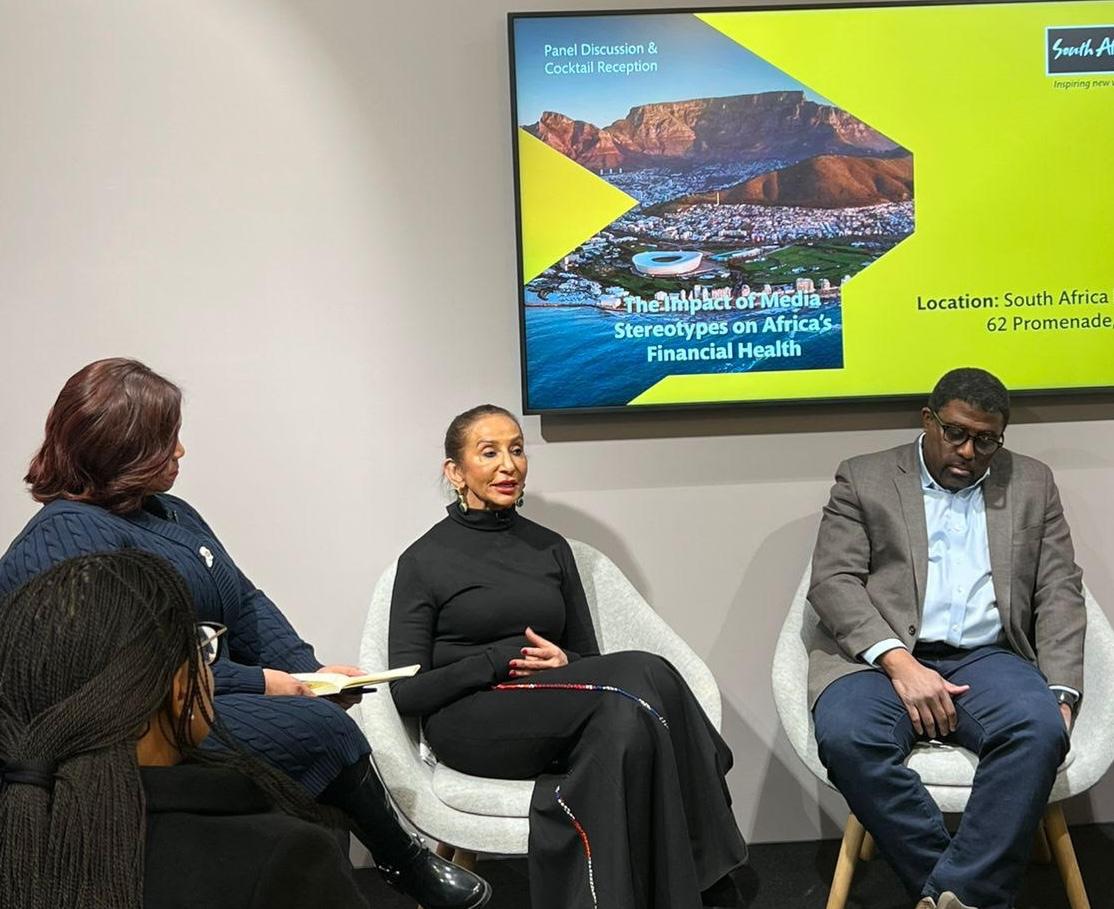
Veteran Pan-African communications expert Gina Din-Kariuki has called on African countries to take charge of their own narratives.
Speaking on the impact of media representations on the continent’s economic prospects, she emphasised the need for intentional storytelling that moves beyond the election cycle and prioritises governance and development.
She spoke on Tuesday during her address at the World Economic Forum in Davos, Switzerland.
Din-Kariuki underscored the importance of challenging stereotypes while urging African governments to take proactive steps.
“Africa must intentionally own its narrative. We cannot afford to keep going from election to election without stopping to govern and showcase the immense potential, resilience, and innovation across the continent,” she said.
She also encouraged African leaders, media practitioners and citizens to drive the change.
“The responsibility to rewrite Africa’s story starts with us—Africans telling the truth about Africa,” she said.
Din-Kariuki’s remarks align with the findings of a groundbreaking report by Africa No Filter and Africa Practice, which revealed that biased media narratives cost the continent up to $4.2 billion (Sh543.3m) annually in inflated debt servicing.
The study, titled The Cost of Media Stereotypes to Africa, employs a combination of quantitative analysis and qualitative insights to explore the financial repercussions of media bias.
The research focuses on electoral processes in four African nations; Kenya, Nigeria, South Africa and Egypt, comparing media coverage with that of Malaysia, Denmark, and Thailand - nations with similar country risk profiles.
The report highlights how negative portrayals of Africa during elections and in global media coverage exaggerate risks, deterring foreign direct investment and increasing borrowing costs.
Some of the key insights from the report are economic losses, where Africa loses up to $4.2 billion annually, a figure that could educate 12 million children, immunize 73 million or provide clean drinking water to two-thirds of Nigeria’s population.
On media bias, the report shows that negative coverage dominates African elections, with 88 percent of articles about Kenya’s election period reported as negative, compared to just 48 percent for Malaysia.
The report also highlights the issue of debt servicing costs, stating that improved media sentiment could reduce borrowing interest rates by one percent, saving African nations billions annually.
The report also emphasises the role of the African Union in developing the Africa Credit Rating Agency to counter pessimistic assessments by international rating firms and calls on stakeholders to collaborate in fostering more accurate portrayals of the continent


